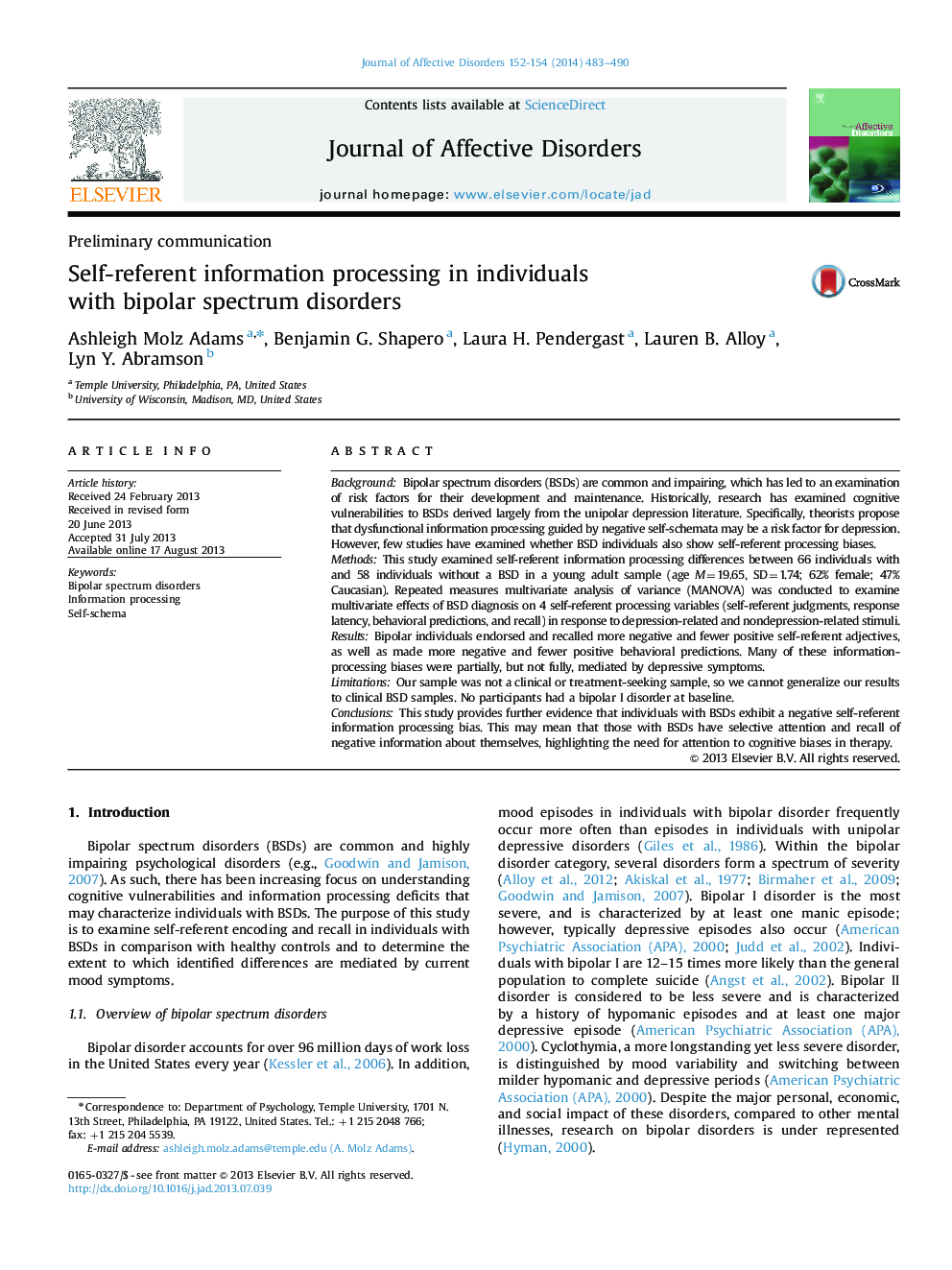| کد مقاله | کد نشریه | سال انتشار | مقاله انگلیسی | نسخه تمام متن |
|---|---|---|---|---|
| 6233246 | 1608171 | 2014 | 8 صفحه PDF | دانلود رایگان |
BackgroundBipolar spectrum disorders (BSDs) are common and impairing, which has led to an examination of risk factors for their development and maintenance. Historically, research has examined cognitive vulnerabilities to BSDs derived largely from the unipolar depression literature. Specifically, theorists propose that dysfunctional information processing guided by negative self-schemata may be a risk factor for depression. However, few studies have examined whether BSD individuals also show self-referent processing biases.MethodsThis study examined self-referent information processing differences between 66 individuals with and 58 individuals without a BSD in a young adult sample (age M=19.65, SD=1.74; 62% female; 47% Caucasian). Repeated measures multivariate analysis of variance (MANOVA) was conducted to examine multivariate effects of BSD diagnosis on 4 self-referent processing variables (self-referent judgments, response latency, behavioral predictions, and recall) in response to depression-related and nondepression-related stimuli.ResultsBipolar individuals endorsed and recalled more negative and fewer positive self-referent adjectives, as well as made more negative and fewer positive behavioral predictions. Many of these information-processing biases were partially, but not fully, mediated by depressive symptoms.LimitationsOur sample was not a clinical or treatment-seeking sample, so we cannot generalize our results to clinical BSD samples. No participants had a bipolar I disorder at baseline.ConclusionsThis study provides further evidence that individuals with BSDs exhibit a negative self-referent information processing bias. This may mean that those with BSDs have selective attention and recall of negative information about themselves, highlighting the need for attention to cognitive biases in therapy.
Journal: Journal of Affective Disorders - Volumes 152â154, January 2014, Pages 483-490
